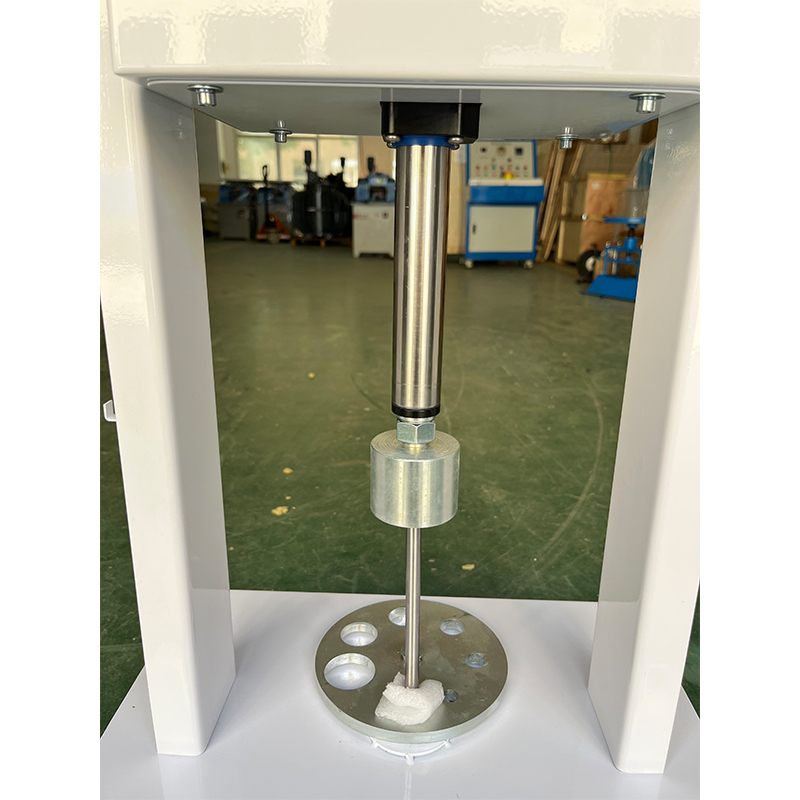Custom Tensile Tester for Measuring Shear Strength in Various Materials
Understanding Custom Tensile Testers and Shear Strength
In the realm of materials science and engineering, the capability to test and understand the mechanical properties of materials is paramount. Among the various testing methodologies, tensile testing plays a crucial role in determining the behavior of materials under tension. A custom tensile tester designed to evaluate shear strength provides a tailored solution to meet specific testing needs.
What is Shear Strength?
Shear strength is a critical property of materials, indicating the maximum stress a material can withstand when subjected to shear forces. These forces act parallel to the surface of the material, as opposed to tensile forces, which pull the material apart. The measure of shear strength is essential, especially in applications where materials are bonded or joined together, such as in welding, adhesive bonding, and structural assemblies.
Understanding shear strength helps engineers predict how materials will behave in real-world applications, guiding selections for design and manufacturing processes. High shear strength often signifies robustness in structures, while low shear strength can indicate a need for design reconsideration.
The Role of Custom Tensile Testers
Standard tensile testing machines are typically configured to measure tensile strength; however, many applications require specialized testing that includes the evaluation of shear strength. This is where custom tensile testers become invaluable. Customization allows for the integration of specific features catering to different materials, geometries, and testing requirements.
A custom tensile tester can be designed to accommodate a wide range of samples, from metals to polymers, and even composite materials. The flexibility in fixture design is crucial to properly hold and test samples without introducing extraneous forces or biasing the results. For instance, a custom fixture can facilitate testing of thin films, foams, or complex geometries that standard machines may struggle with.
Features of an Effective Custom Tensile Tester
custom tensile tester shear strength

2. Load Cells and Sensors High-precision load cells and sensors provide real-time data on the force applied to samples, enabling exact measurement of shear strength and other mechanical properties.
3. Software Integration Modern custom testers often include software that analyzes the data in real-time, providing insights into material behavior through stress-strain curves and other metrics.
4. Environmental Control For certain materials, environmental factors can substantially alter mechanical properties. Custom tensile testers can incorporate environmental chambers to test materials under controlled temperature and humidity conditions.
5. User-Friendly Interface A well-designed interface allows operators to set parameters efficiently and retrieve results quickly, enhancing productivity in laboratory settings.
Applications in Industry
Industries ranging from construction to aerospace depend on accurate shear strength data to ensure the safety and reliability of their products. For instance, engineers designing bridges must consider the shear strength of connection points where beams join to prevent catastrophic failures. In the automotive sector, understanding the shear strength of bonded joints can determine vehicle safety during collisions.
Furthermore, the growing advancements in materials engineering, particularly in composites and new alloys, emphasize the need for precise testing capabilities. Custom tensile testers that include shear strength assessments can bridge the gap between material innovation and practical application, ensuring that new materials perform as expected under real-world conditions.
Conclusion
In conclusion, custom tensile testers designed to measure shear strength are a vital investment for any laboratory focused on materials testing. By providing tailored solutions that adapt to specific testing needs, these systems enhance our understanding of material performance under shear forces, ultimately driving innovation and safety across various industries. As the demand for high-performance materials continues to grow, so will the importance of accurately assessing their mechanical properties through advanced testing technologies.
-
The Role of Tensile Force Testers in Quality Control and Material Science
NewsAug.01,2025
-
Maintenance and Safety Tips for Aging Ovens
NewsAug.01,2025
-
Density Balance in Forensic Science
NewsAug.01,2025
-
Advanced Optical Measurement Technologies
NewsAug.01,2025
-
A Buyer’s Guide to Tensile Test Machines
NewsAug.01,2025
-
Why the Conductor Resistance Constant Temperature Measurement Machine Redefines Precision
NewsJun.20,2025
 Copyright © 2025 Hebei Fangyuan Instrument & Equipment Co.,Ltd. All Rights Reserved. Sitemap | Privacy Policy
Copyright © 2025 Hebei Fangyuan Instrument & Equipment Co.,Ltd. All Rights Reserved. Sitemap | Privacy Policy
